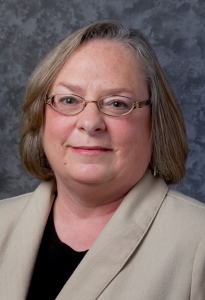
The 2015 legislative session should come to a close this week as we approach the 90th Day. However, there are issues that were not resolved during the regular session that still must be addressed before final adjournment.
The most important considerations remaining are the budgets for the next two fiscal years and whether there are sufficient revenues to fund these budgets. It is still unclear how the state will fund the cost of whatever budget emerges. The Legislature will have to address the revenue shortfall because, the state cannot deficit spend. With no clear solution in sight this could cause the veto session to go longer than the 90 days.
It remains an incredible honor to represent our community in the Kansas House of Representatives. While the Legislature is in session, I do my best to stay in touch and keep you informed by email, and I spend countless hours every week helping my constituents solve problems. If I can be of service to you or anyone you know please call my office at 785-296-7371 or email me at pam.curtis@house.ks.gov
Budget and taxes
Despite the House Appropriations Committee meeting several times this week, the legislature still does not have a comprehensive budget proposal to fund the 2016 and 2017 fiscal years, or to address the looming $800 million deficit. The session is nearly over and it is still unclear how the state will be able to fund the cost of whatever budget emerges.
Several lawmakers in both chambers have proposed a number of tax increases to help the state make ends meet including increasing sales taxes, raising property taxes, taxing certain kinds of income, and taxing gas, tobacco, and alcohol at higher rates.
Kansas is the ninth most regressive tax state, and using any of these proposals to fill the deficit would disproportionally affect lower income Kansans. As proposals continue to be introduced, I will consider any plan that is fair, equitable, and sustainable and puts the needs of Kansas’ families first.
RPS
The House voted this week to approve a bill amending Kansas’ Renewable Portfolio Standards (RPS). Based on an agreement reached by wind and business industry leaders, the bill:
• Transitions the state’s mandate of twenty percent renewably sourced energy by 2020 to a voluntary goal.
• Replaces the indefinite property tax exemption with a ten year property tax exemption for future renewable energy projects.
• Clarifies that renewable energy is not a public utility, and is therefore not subject to a higher tax rate.
• Avoids a 4.3 percent excise tax on wind energy production.
Civil service
The Senate approved a bill, which amends the Kansas Civil Service Act and changes protections for state employees. The House passed the same bill earlier in the legislative so the bill will now be sent to the governor, who is expected to sign it into law.
I voted no when it appeared before the House. The bill removes state employees’ classified status, changing them to ‘at-will’ employees who can be fired without cause.
This bill risks replacing the state’s current merit based system with a corrupt system of political patronage. Kansans deserves the best possible employees delivering services, regardless of their political affiliation or beliefs.
Kobach’s prosecutorial powers
A proposal to grant the Kansas Secretary of State the authority to criminally prosecute voter fraud was approved by the House Judiciary Committee. The bill will greatly redefine the role of the Secretary of State from Chief Elections Officer to a public prosecutor. Kansas has already vested the authority to prosecute voter fraud in county and district attorneys elected at the local level. Allowing the Secretary of State to overstep a locally elected leader’s power impedes on local control.
Another provision in the bill that is concerning would allow candidates to give gifts of no more than $3 to a voter. Under current state statute, it is illegal and considered election bribery to distribute items of tangible monetary value. Changing the law sets a dangerous precedent, and potentially exposes the democratic process to corruption. To voters $3 might seem not seem like much, but it is a matter of principle – there is not a price on democracy and votes should never be bought.
Uber
While legislators were on break in April, Gov. Brownback vetoed consumer protection legislation that regulates ride-sharing services (like Uber) by requiring drivers to complete a background check and carry comprehensive and collision insurance on their vehicles. Both the House and Senate voted this week to override the veto.
I voted to override the veto because the bill provides essential consumer protection for individuals using the ride sharing service. While the legislature’s action in no way prevents the company from operating, in a dramatic response, ride-sharing service Uber immediately shut down all operations in the state. I remain willing to continue negotiations with Uber in the future, so the state can reach a compromise that protects consumers and allows ride sharing companies to operate safely.
Changes to marijuana possession penalties
This week the House approved HB 2049, in response to projections from the Kansas Sentencing Commission that state prison populations will soon exceed current bed capacity. The legislation would lessen the current penalties of marijuana possession for repeat offenders, lowering the first violation to a less severe misdemeanor and changing the second violation from a felony to a misdemeanor. A third, and subsequent, violation would still result in a felony offense. If signed into law the state may save over $1.2 million over the next year alone.
The bill also legalized the pharmaceutical use of non-intoxicating hemp oil, which has less than 3 percent THC, to address the needs of Kansans suffering from debilitating seizure disorders who have exhausted treatment options. The regulatory framework established by the bill includes strict licensing requirements and oversight for the production, prescription, distribution, and use of hemp oil. In doing so, the bill balances the need for positive health outcomes with the need to protect public and patient safety.
